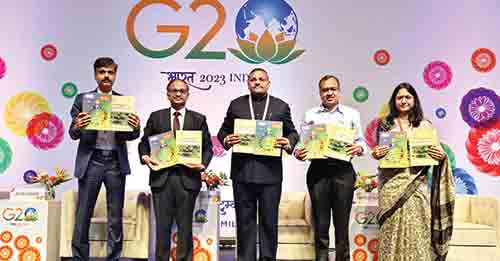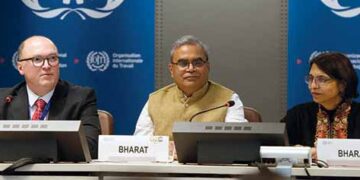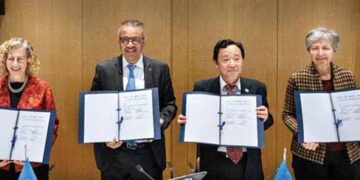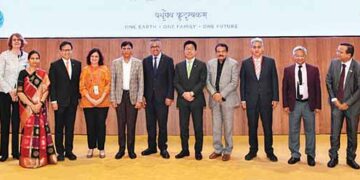 MUMBAI: The Ministry of Coal, in collaboration with Coal India Limited (CIL), hosted a three-day seminar on the ‘Just Transition Roadmap,’ at the Jio World Convention Centre in Mumbai. It was organised as a side event of the third meeting of G20 Energy Transitions Working Group (ETWG). The aim of the meeting was to explore challenges and opportunities associated with a ‘just transition’ in the energy sector.
MUMBAI: The Ministry of Coal, in collaboration with Coal India Limited (CIL), hosted a three-day seminar on the ‘Just Transition Roadmap,’ at the Jio World Convention Centre in Mumbai. It was organised as a side event of the third meeting of G20 Energy Transitions Working Group (ETWG). The aim of the meeting was to explore challenges and opportunities associated with a ‘just transition’ in the energy sector.
India, keen on upscaling its development to cater to the aspirations of its growing population, is pressing for a ‘just energy transition’ at G20 discussions. Speaking to reporters, Union Coal Secretary Amrit Lal Meena said that approximately 50 lakh people in India are directly dependent on coal mining activities.
In light of this, India aims to pursue a balanced growth model based on the principles of “Common but Differentiated Responsibilities and Respective Capabilities”, ensuring climate justice.
Coal livelihood
“As per our estimation, about 50 lakh people are engaged directly or indirectly in coal mining activities, especially in eastern Indian states. So, “just transition” has to cater to that challenge,” Meena said. He emphasised the importance of considering questions related to livelihoods, alternative vocations, skill development, healthcare, and education while charting the way forward.
India has identified 30 mines where coal mining has already concluded, and coal companies have initiated a two-three year exercise of closure, Meena added. The country is actively utilizing the de-coaled land for environmentally friendly purposes, such as creating forests using fly ash or utilizing it for agricultural endeavors.
What is just transition
Since the 1980s, the concept of a “just transition” has been at the forefront of discussions surrounding workers’ rights in the face of environmental regulations. In recent years, the idea has taken on a broader scope, becoming integral to achieving climate goals and ensuring a fair and inclusive transition to a netzero future. According to the International Labour Organisation (ILO), a “just transition” entails greening the economy in a manner that is fair, inclusive, and creates decent work opportunities for all.
To achieve a just transition, ongoing dialogue is essential. Each country must foster a common vision that addresses the concerns of affected workers, communities, and businesses. By doing so, they can embark on a path towards a resilient net-zero economy and drive local solutions.
Promotes sustainability
Moreover, a just transition serves not only to advance climate action but also to make progress across various Sustainable Development Goals (SDGs). By ensuring affordable and clean energy, promoting decent work and economic growth, reducing inequalities, and encouraging responsible production and consumption, a just transition aligns with a comprehensive sustainability agenda.
As countries worldwide confront the impacts of climate change and strive to green their economies, embracing the principles of a just transition is crucial. By bringing the public along, fostering a green jobs revolution, establishing social foundations for resilience, driving local solutions, and reinforcing the urgency for climate action, a just transition paves the way towards a sustainable and equitable future.

































